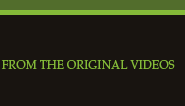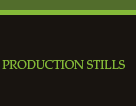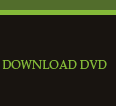

- Paul Hawken, author, 'Blessed Unrest: How the Largest Movement in the World
Came into Being and Why No One Saw it Coming'
Featuring four historic videos
-----------------------------------------------
"An Introduction to Ecological Economics"
"Investing in Natural Capital"
"Conversation for a Sustainable Society"
"Costa Rica Counts the Future"
in one DVD
Gaylord Nelson, Herman Daly, John Cobb Jr., Ann Kapuscinski, Martin Evers and others emphatically demonstrate that the human economy is a smaller, open sub-system of a finite, non-growing and materially closed ecosystem. The stunning liquidation of the forests in Siberia and the Pacific Northwest; the looming collapse of the global fishery; humanity’s preemption of the Net Primary Product of Photosynthesis; and Daly and Cobb’s ‘Index for Sustainable Economic Welfare’ are put into an exciting, revolutionary perspective. Video excerpts from ‘The Ancient Forest’ provided by Light Hawk, the ‘Environmental Air Force’. Video finalist, World Congress, Eco-Ed ’92, Toronto, Canada
Herman Daly, Robert Costanza, Paul Ehrlich, William Rees, Cutler Cleveland, AnnMari Jansson, Paul Ekins and others explore the earth's carrying capacity as it relates to agriculture, international trade, property rights, and over-population. Filmed on the shores of the Baltic Sea, it is argued that we must shift investment from man-made capital to natural capital in order to adapt to a world with a new pattern of scarcity. The precautionary principle, per-capita resource consumption, ecological tariffs and more are discussed. Featuring the video map ‘World Population, 0000-2020’ by Zero Population Growth.
Amory Lovins, Hunter Lovins, David Orr, Dennis Meadows, Claudine Schneider and others bring humor and joviality to the serious business of energy efficiency and resource productivity. Promoting market-based end/use, least/cost solutions that include energy efficient technologies; lighting/heating/cooling retrofits in commercial leasing markets, utility reform; regulatory/accounting innovations; and system analyses by students of their college resource flows, the video provides a glimpse of the heady early days of the clean-tech revolution.
Costa Rican President José Maria Figueres, Juan Martinez-Alier, Donella Meadows, Paul Ekins, Dr. Rodrigo Gámez, Dr. Alvaro Umaña and three rural Costa Rican Southern Zone cooperatives appear in this elegant, bilingual documentary (with Spanish/English subtitles) that presents Costa Rica’s adoption of ecological economics as official policy. CO2 mitigation services; secondary forest protection; commercial exploration and preservation of biodiversity; botanical medicine; eco-tourism; organic agriculture; economic opportunity for women; and sustainable yield mangrove charcoal production are included in this richly illustrated video.
In a series produced from 1991 to 1996, four provocative 45 minute documentary videos cover the historic emergence of the young science of ecological economics – in one easy to navigate DVD. Providing unprecedented access to the inspirational analyses and prescient warnings of some of the world’s most renowned ecologists, economists, scientists and politicians, Natural Capital Speaks! captures the fascinating, early days of an economics that counts the earth.
F E A T U R I N G
Sound, Lighting, Technical Coordination and Editing by Robert L. Campbell;
Produced, Directed, Designed and Filmed by Peter R. Griesinger.













